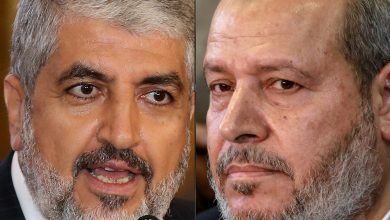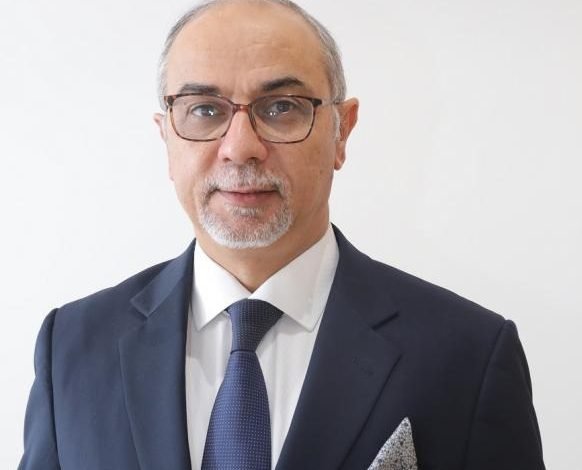
By : Nedal Zubeidi
Jordan Daily – In a time of rapid economic change and growing complexity in public administration, Professor Khalid Al Wazani has quietly built a career that bridges academia, public service, and strategic advisory roles. With decades of experience across government institutions, the private sector, and research centers in Jordan and the UAE, his work reflects a consistent commitment to thoughtful reform, institutional development, and evidence-based policymaking.
Currently a Professor of Economics and Public Policy at the Mohammed Bin Rashid School of Government (MBRSG) in Dubai, Al Wazani continues to guide new generations of students and policymakers. His academic work is deeply informed by real-world experience- experience earned over decades of high-stakes decision-making in both difficult and transformative periods for the region.
Before joining MBRSG, Al Wazani served as Strategy and Knowledge Advisor to the Mohammed Bin Rashid Al Maktoum Knowledge Foundation (MBRF) from 2015 to 2019, where he helped shape knowledge economies and future-forward governance models. He has also been a freelance consultant, specializing in economic modeling, strategic planning, and the increasingly crucial domain of policy nudging and administrative agility.
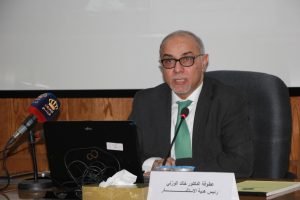
But perhaps one of his most visible public roles came when he was appointed Chairman of the Jordan Investment Commission (JIC) in 2019- a tenure marked by structural reforms, an emphasis on entrepreneurship, and a drive to localize investment success stories.
“Any successful investment project in Jordan becomes a story of success that helps attract more investments,” he once stated, underscoring his belief that sustainable investment must be both local and scalable.
During his term at JIC, which ended in late 2020, Al Wazani established a dedicated department for emerging and entrepreneurial projects- an initiative that reflected his long-standing view that small and innovative businesses are critical tools in reducing poverty and unemployment.
In his resignation letter, he wrote with humility and a sense of collective purpose: “We have walked together through important and fruitful stages. I did my best and, like anyone, I may have succeeded and I may have erred.”
His parting words encapsulated a career marked by service, reform, and the perpetual pursuit of improvement.
Earlier in his career, Al Wazani was an Associate Professor of Economics at the Hashemite University in Jordan, later rising to Deputy Dean of the Faculty of Economics. He was also the founder and first General Manager of the university’s Research, Consultancy, and Community Service Center. His academic contributions were quickly noticed at the national level.
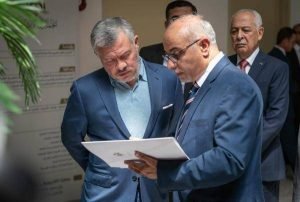
Between 2001 and 2005, Al Wazani served as Director of the Economic and Development Division at the Royal Hashemite Court, where he headed the Economic Team for King Abdullah II- a role that demanded a delicate balance between vision, execution, and diplomacy.
He also held pivotal roles such as Director General of the Jordanian Customs Department (1999–2001) and Deputy Chairman and Director General of the Social Security Corporation (2004–2006), navigating some of Jordan’s most complex economic landscapes.
Later, he transitioned into the private sector as CEO of Saraya Aqaba Real Estate and senior executive of Taameer Jordan and Darat Jordan Holdings between 2006 and 2011, adding yet another dimension to his already multifaceted career.
Al Wazani’s writings reveal a deep concern for global economic stability and a rare ability to contextualize macroeconomic trends for regional application. In one of his widely circulated opinion pieces, he sounded the alarm on a looming global debt crisis:
“When global debt- both public and private- exceeds three times the size of the world’s GDP… remaining silent about this crisis becomes a big mistake.”
He urges debtor nations, particularly in the Global South, to rethink debt management through smarter structures, better sourcing, and more strategic allocation. For Al Wazani, economics is not just about numbers- it’s about choices, priorities, and accountability.
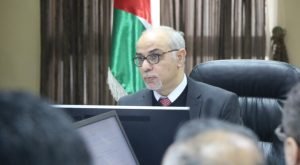
Just as he scrutinizes outdated economic models, Al Wazani advocates for forward-thinking governance. His admiration for Dubai’s artificial intelligence (AI) strategy is clear and rooted in evidence. Since the UAE launched the world’s first national AI strategy in 2017 and appointed the first Minister of AI, the country has become a global template for tech-enabled governance.
Al Wazani views Dubai as the embodiment of operational innovation: “Dubai’s strategy goes beyond adopting technology—it reimagines public service delivery… aiming for a post-bureaucratic government model powered by AI.”
From epidemic control to smart energy management, Dubai’s AI integration is not cosmetic- it is structural, long-term, and deeply performance-oriented. The city aims to raise AI’s contribution to its GDP to over 14% by 2030, backed by nearly $100 billion in investments.
Today, Dr. Khalid Al Wazani stands as one of the region’s most respected economic minds. His blend of academic depth, strategic insight, and practical experience gives him a rare voice in shaping conversations on reform, innovation, and the future of governance.
In classrooms, lecture halls, boardrooms, and policy forums, his voice carries the weight of someone who has not only studied change- but contributed to it.

